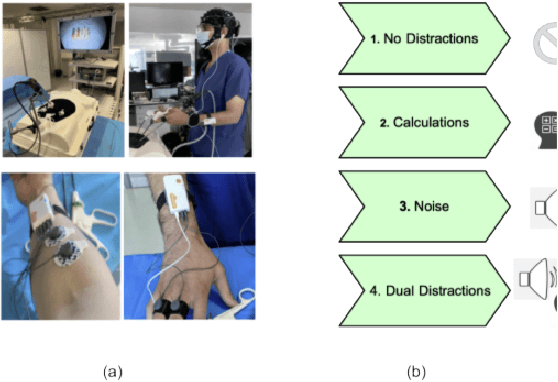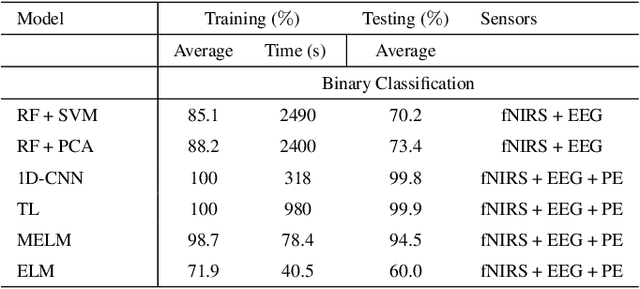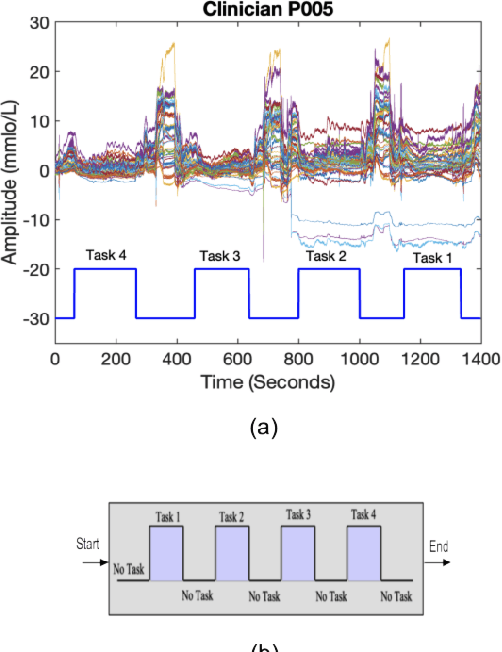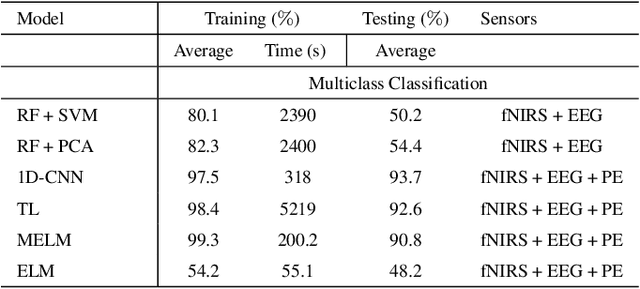Adrian Rubio-Solis
On-board Sonar Data Classification for Path Following in Underwater Vehicles using Fast Interval Type-2 Fuzzy Extreme Learning Machine
Jun 15, 2025Abstract:In autonomous underwater missions, the successful completion of predefined paths mainly depends on the ability of underwater vehicles to recognise their surroundings. In this study, we apply the concept of Fast Interval Type-2 Fuzzy Extreme Learning Machine (FIT2-FELM) to train a Takagi-Sugeno-Kang IT2 Fuzzy Inference System (TSK IT2-FIS) for on-board sonar data classification using an underwater vehicle called BlueROV2. The TSK IT2-FIS is integrated into a Hierarchical Navigation Strategy (HNS) as the main navigation engine to infer local motions and provide the BlueROV2 with full autonomy to follow an obstacle-free trajectory in a water container of 2.5m x 2.5m x 3.5m. Compared to traditional navigation architectures, using the proposed method, we observe a robust path following behaviour in the presence of uncertainty and noise. We found that the proposed approach provides the BlueROV with a more complete sensory picture about its surroundings while real-time navigation planning is performed by the concurrent execution of two or more tasks.
Identification of Cognitive Workload during Surgical Tasks with Multimodal Deep Learning
Sep 12, 2022



Abstract:In operating Rooms (ORs), activities are usually different from other typical working environments. In particular, surgeons are frequently exposed to multiple psycho-organizational constraints that may cause negative repercussions on their health and performance. This is commonly attributed to an increase in the associated Cognitive Workload (CWL) that results from dealing with unexpected and repetitive tasks, as well as large amounts of information and potentially risky cognitive overload. In this paper, a cascade of two machine learning approaches is suggested for the multimodal recognition of CWL in a number of four different surgical tasks. First, a model based on the concept of transfer learning is used to identify if a surgeon is experiencing any CWL. Secondly, a Convolutional Neural Network (CNN) uses this information to identify different types of CWL associated to each surgical task. The suggested multimodal approach consider adjacent signals from electroencephalogram (EEG), functional near-infrared spectroscopy (fNIRS) and pupil eye diameter. The concatenation of signals allows complex correlations in terms of time (temporal) and channel location (spatial). Data collection is performed by a Multi-sensing AI Environment for Surgical Task $\&$ Role Optimisation platform (MAESTRO) developed at HARMS Lab. To compare the performance of the proposed methodology, a number of state-of-art machine learning techniques have been implemented. The tests show that the proposed model has a precision of 93%.
 Add to Chrome
Add to Chrome Add to Firefox
Add to Firefox Add to Edge
Add to Edge